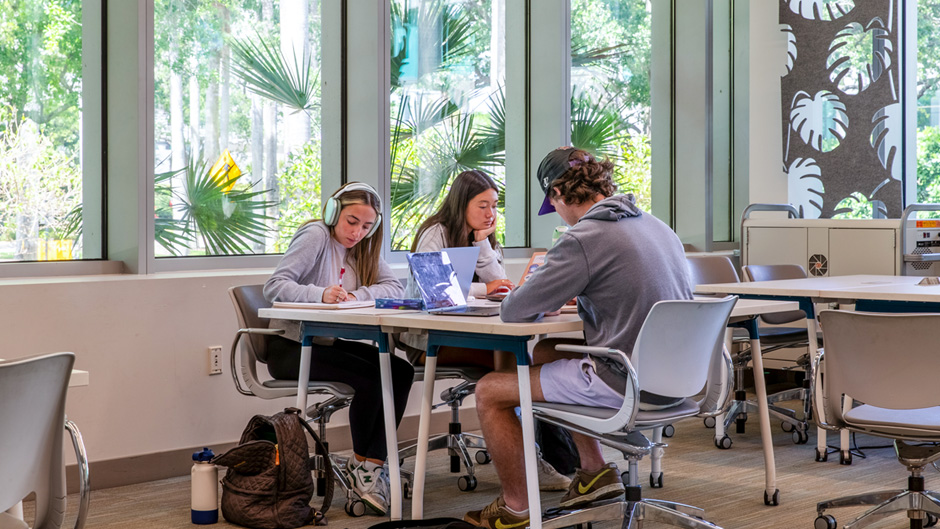As we gear up for the much-anticipated Thanksgiving holiday break, it is important for University students to prepare for final exams. Start prioritizing and utilizing study spaces now to ensure a more stress-free final exam experience.
While final exams week can bring increased pressure, students can take advantage of the following advice and campus resources to successfully navigate the final stretch of the semester with confidence and care.
Make a plan
A well-structured study plan is one of the most effective tools for academic success. It helps ensure you don’t miss important deadlines, prevents last-minute cramming, and increases efficiency.
To get started, use tools like planners, study apps, or a simple to-do list. Break down large projects into smaller, manageable tasks, and set aside specific times for review.
Practice mindfulness
University Libraries provide space, resources, and programming to support students’ well-being throughout the semester and, especially, during the exam period.
Simple mindfulness practices include:
- Taking deep breaths with long exhales.
- Grounding your attention in physical sensations (e.g., touching a desk or feeling the floor beneath your feet).
- Visualizing a peaceful natural setting, like a favorite tree or mountain.
Students looking for a quiet space to practice mindful meditation can book a meditation room through the University Libraries.
Take care of your physical health
A healthy body is vital for success, particularly during increased stress like final exams. Physical activity and self-care routines can mitigate the effects of tension on the body and mind, helping students stay focused and energized.
Students can explore daily yoga classes at the Patti and Allan Herbert Wellness Center, which emphasizes relaxation techniques to help connect the mind and body. Yoga can offer relief for tension and tightness that builds up in the shoulders and back. Paired with a ready-to-eat meal at the dining hall, students can nourish their bodies and stay well-fed while on campus.
Get a full night's rest
While it may feel like pulling an all-nighter is necessary, studies indicate that students who get adequate sleep tend to perform better on exams than those who stay up late studying. A cold, dark, quiet environment is ideal for getting quality sleep along with limiting electronic use in the 30 minutes leading up to sleep.
Know when it’s time to seek support
Students should be aware of how they typically feel and act during less tense times.
Physical manifestations of stress include, but aren’t limited to, headaches, difficulty sleeping, upset stomach, change in eating habits, social withdrawal, outbursts, and substance misuse. Stay alert to how you feel so you can catch these symptoms and take a step back if necessary.
For additional support, students can explore WellTrack, a free online therapy platform with modules for managing anxiety and depression, relaxation exercises, and interactive simulations for specific anxieties like public speaking.
If students have taken steps to control stress, but symptoms persist, it may be time to consider seeking professional support, such as the services available at the Counseling Center. Schedule a brief assessment appointment or check out additional mental health services and resources on their website.
Additional resources for students
Take full advantage of these on-campus resources to support your well-being and academic success:
Wellness resources
Campus facilities
Academic resources
- Camner Center for Academic Resources tutoring services
- Writing Center
- Math Lab
- Peer Research Consultants
- Creative Studio

